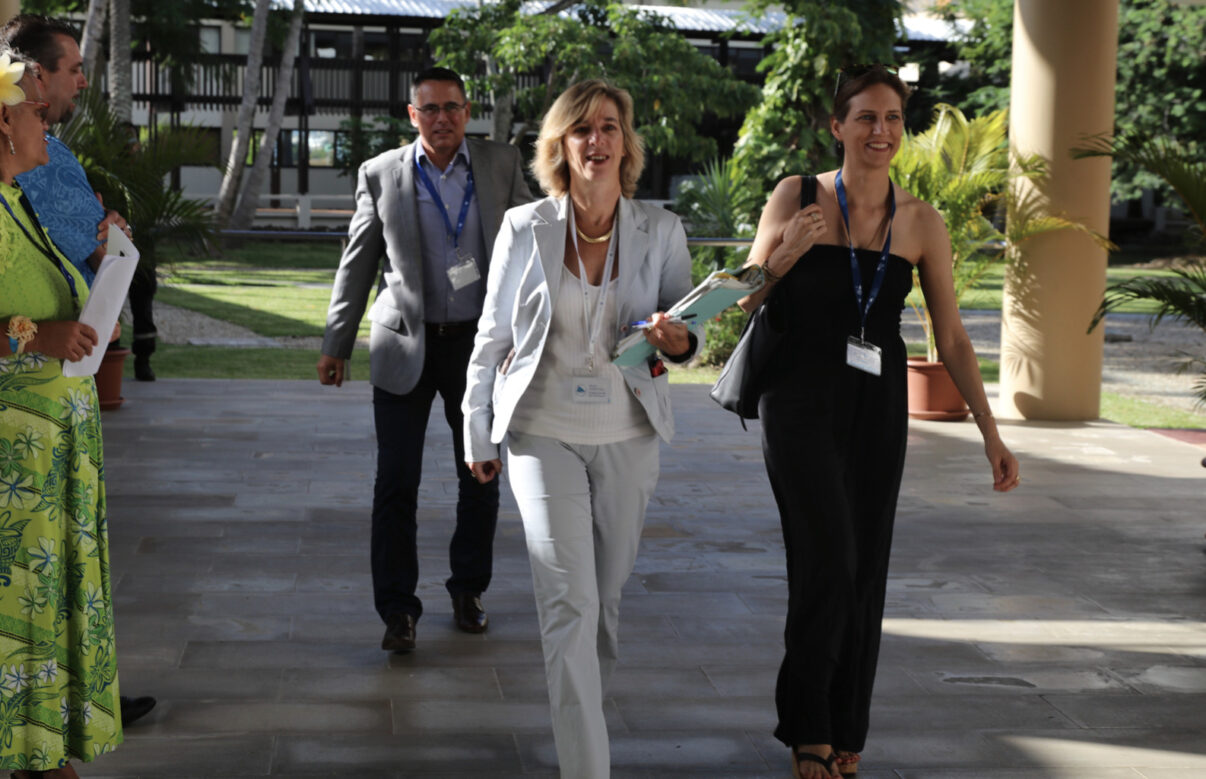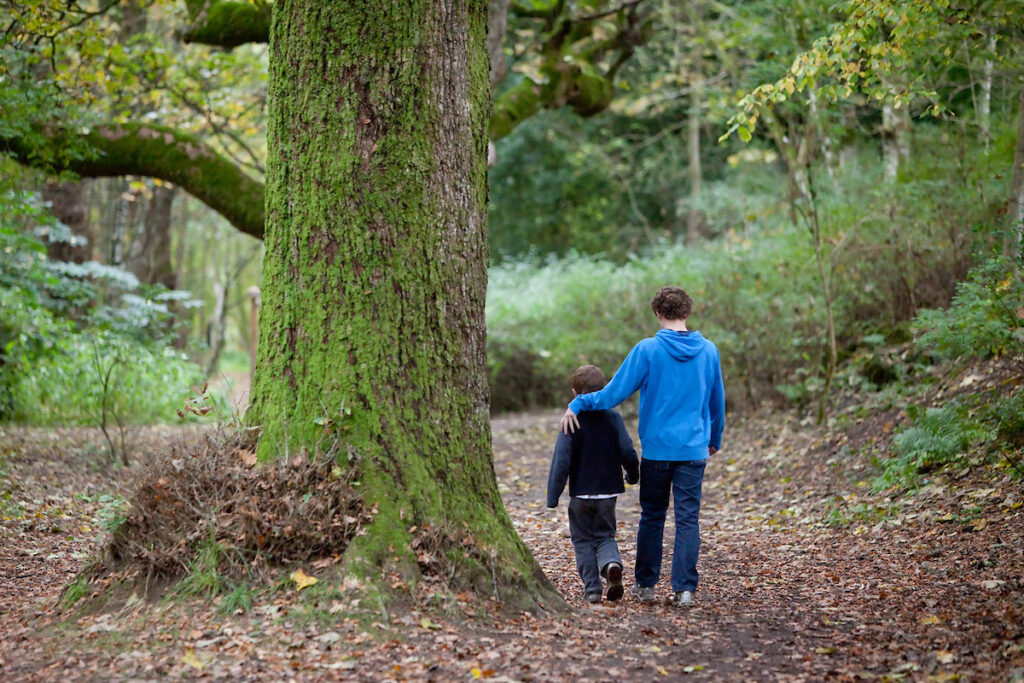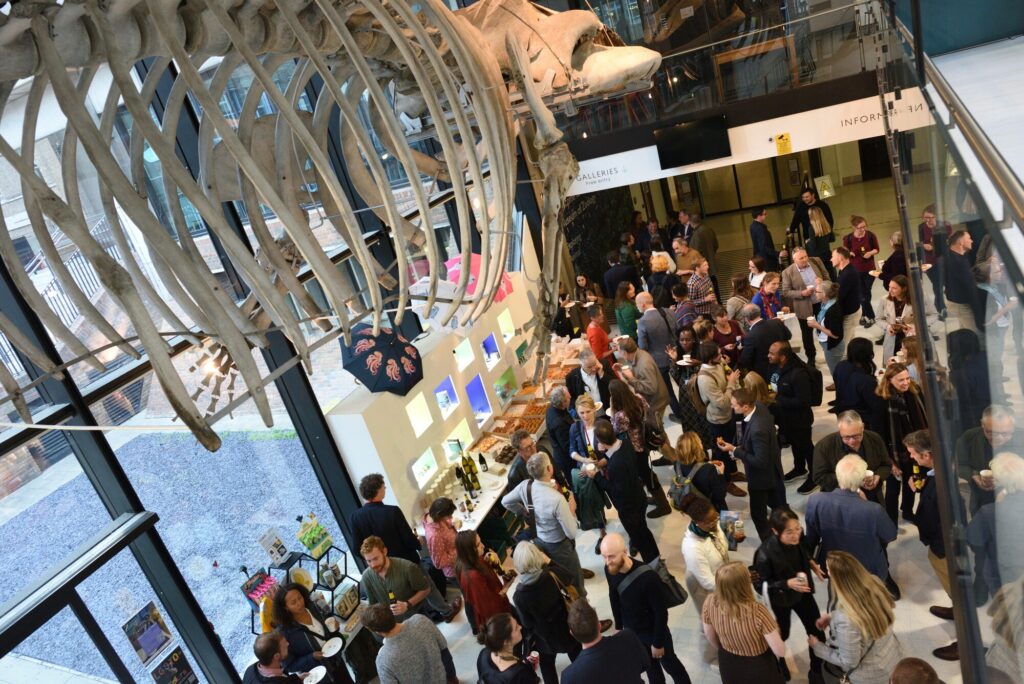Rewilding Europe is delighted to welcome Sylvie Goyet as the newest member of its Supervisory Board. We caught up with her to find out a little more about her background, her new role, and her passion for rewilding and nature.

With an academic background in environmental management, finance and business, Vienna-based Sylvie Goyet has worked on environmental protection, climate change and sustainable development for over 20 years, serving UN agencies, international NGOs, and private foundations in Europe, Africa, Asia and the Pacific.
What are your thoughts on rewilding and why does it appeal to you?
My understanding of rewilding is maybe a little bit different, as my international postings mean I haven’t spent much time in Europe until now. I’ve largely worked in places where wild nature is already there, mostly – in Asia, in Africa, and in the Pacific. The issue in these places – particularly in areas peopled by indigenous communities – is to protect and sustain the biodiversity that still exists, and the intrinsic connection between people and nature, which is still very strong
Things are obviously different in Europe. We don’t have so much pristine nature, and we don’t really have indigenous communities in the truest sense. Yet I still believe rewilding can help to put the wild back at the centre of society, as a pillar.
So much imbalance has been created in Western society between nature and people – I think rewilding at scale can give nature a chance to recover and regain its place in Europe, and to provide the benefits that both Europeans and European wildlife rely on. For me, rewilding is not only about restoring the functionality and resilience of nature, but restoring the connection between people and the wild. I see Rewilding Europe playing a key role in these two things.
I am particularly passionate about both environmental protection and conservation finance, so the integrated approach of rewilding really appeals to me. The fact that it not only focuses on the protection and comeback of wildlife and the restoration of natural processes, but on enhancing the benefits that wilder nature can deliver to people, businesses, and communities too.

Why did you decide to join Rewilding Europe’s Supervisory Board?
I believe the governance of any organisation is critical. Particularly in times of change, I think it’s essential to have a well-functioning supervisory board – not only to support the executives, but to watch out for risks and uncertainties, and to help forge a vision and strategic thinking for the organisation. I think I can make a contribution in this regard.
I like Rewilding Europe’s landscape approach to conservation – there are challenges, of course, but at this scale I think we can really make a difference, with a wide range of activities and entry points. The initiative’s integrated approach, which not only focuses on ecosystem restoration and wildlife comeback, but also the development of nature-based business, and livelihoods, and financial sustainability, is the right one. I’m happy to support it as much as I can.
How do you see yourself adding value to Rewilding Europe’s mission?
I’ve worked a lot on community-based conservation in places such as Africa and the Pacific. Communities actually lead conservation actions – so it’s a bottom-up, rather than a top-down approach. I think my experience in these areas, where there is still an intimate connection between people and nature, can be useful.
In New Caledonia (in the Pacific), for example, they’ve passed an environmental code which means that certain elements of nature can have a legal personality, with their own rights. And in New Zealand, a river has been granted the same legal rights as a human being. You also find this deep-rooted link with nature in many parts of Africa. There are many such cases across the world.
Traditional knowledge about nature is still valued very highly in the South. I think this can help to inform Rewilding Europe’s work as we try to rebuild this connection and regenerate local knowledge about living in harmony with nature in European landscapes.
I also think I can make a contribution in the area of conservation finance and the development of sustainable financing instruments that we can put to use in landscape-scale rewilding. I’m really interested in enabling and encouraging the corporate sector to invest on nature recovery and making more of a contribution to the common good that is biodiversity, which is frequently critical to corporate production systems.

Do you expect to learn anything in your new role?
Yes, of course! We are in a setting here in Europe where there are many delicate layers of government, authority and regulation to be taken into account. Throughout my career, I’ve mostly worked in places where this kind of framework hasn’t been so prominent. In Europe, conservation frequently involves a lot of juggling, so this will be a nice challenge for me. I also expect to learn more about the ecological side of rewilding – its successes, challenges and impacts, and long-term, landscape-scale conservation – it won’t be a one-way contribution!
Where is your favourite place to go to connect with wild nature?
I have a small house in the French Alps where the family gathers at least once a year. We hike and camp in the mountains – there are lots of places where nobody really goes, with isolated cabins and beautiful scenery. In Vienna, where I live now, I like to put on my sports shoes and go running in the forest. I might not be in the wildest of wild places, but this still gives me a real physical and mental boost.
Learn more about Sylvie’s professional experience and background on our team page.
